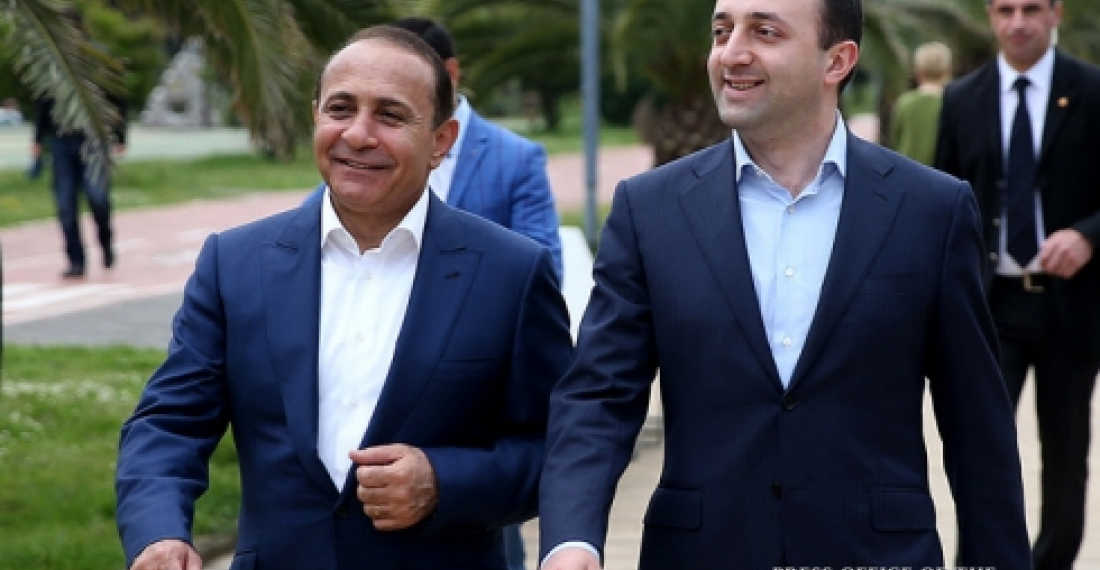Премьер-министры Грузии и Армении встретились в Батуми в минувшее воскресенье (17 мая), где обсудили ряд вопросов, связанных с их двусторонними отношениями. Ираклий Гарибашвили и Овик Абрамян сосредоточили свое внимание главным образом на экономических отношениях между двумя странами, как сообщают пресс-службы двух премьеров.
Грузия и Армения выбрали различные траекторий в их международных экономических отношениях - Грузия подписала Соглашение об ассоциации с Европейским Союзом, в то время как Армения с января стала полноправным членом Евразийского экономического союза, продвигаемого Россией. Оба правительства обязались сделать все возможное, чтобы гарантировать, что эти различные международные обязательства не навредят их двусторонним отношениям.
Ранее в этом месяце Грузия выражала недовольство касательно встречи между председателем парламента Армении и председателем парламента самопровозглашенной Республики Южная Осетия. Армянская сторона заявила, что встреча носила частный характер, но Грузия посчитала, что это указывает на армянскую поддержку отделения Южной Осетии от Грузии.
Источник: commonspace.eu
фото: Премьер-министр Армении Овик Абраамян и Премьер-министр Грузии Ираклий Гарибашвили после их встречи в Батуми, 17 Май 2015 (фото предоставлено пресс-службой правительства Армении).






